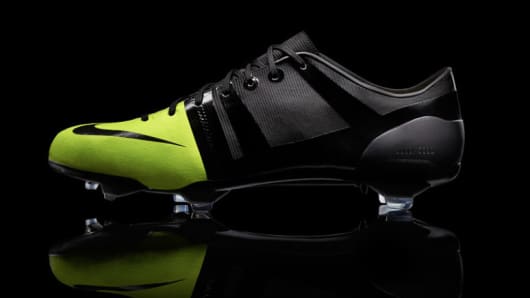“What you're seeing is the evolution of a consumer who is more and more sophisticated,” said David Mattin, lead strategist at consumer research firm Trendwatching.com. “Consumers are asking ‘What is really a sustainable product?’”
Mattin said that for increasingly eco-conscious consumers, the new gold standard in environmental sustainability is a trend his firm calls "super-eco."
“Truly super-eco innovation businesses or brands are those that have thought about their process from start to finish,” he explained, ”and every aspect of it is sustainable, or at least taking significant steps toward sustainability.”
While total sustainability is usually an easier proposition for startups, Mattin noted that multi-national firms like Nike are embracing super-eco when it comes to individual products, such as its Nike GS soccer shoes. (More:Baxter Is Not Your Typical Robot)
“The boots are mainly made from castor beans,” he said, “while the laces and lining are made from a minimum of 70 percentrecycled materials.”
Alcoa’s EcoClean technology is also considered super-eco because it improves the environment. The aluminum maker’s Reynobond building materials, made with EcoClean coatings, use titanium oxide to break down air polluting gases and help a building stay clean.
“It’s a more sophisticated way at looking at what sustainability brings to the table,” that has evolved from early sustainability efforts, said Will Sarni, director and practice leader for enterprise water strategies at Deloitte.
Companies have moved beyond understanding their water and energy consumption, Sarni argued, and are now asking, “’Can I get to zero on some of these so I don’t have an impact?’ And some companies are doing that around waste regeneration, and they’re doing it with respect to water.”
Japanese technology conglomerate TDK Corp is trying to do it around production of its electrical components, and actually trademarked the term "Super Eco Love" last year, to highlight its products developed with minimal environmental impact, like reduced energy manufacturing techniques, and lower use of chemicals.
Companies have long used sustainability to appeal to customers. “There's a market segment where it's worth doing things because you can actually charge a premium price,” said Geoffrey Heal, Co-Director of Columbia University’s Center for Economy, Environment and Society.
But increasingly, Heal said, the need for resources is the driving force behind sustainability in business. “It’s more of a question of wanting to guarantee the continuity of their supplies in the long run,” Heal says. (More:How 3D Printers Are Reshaping Medicine)




